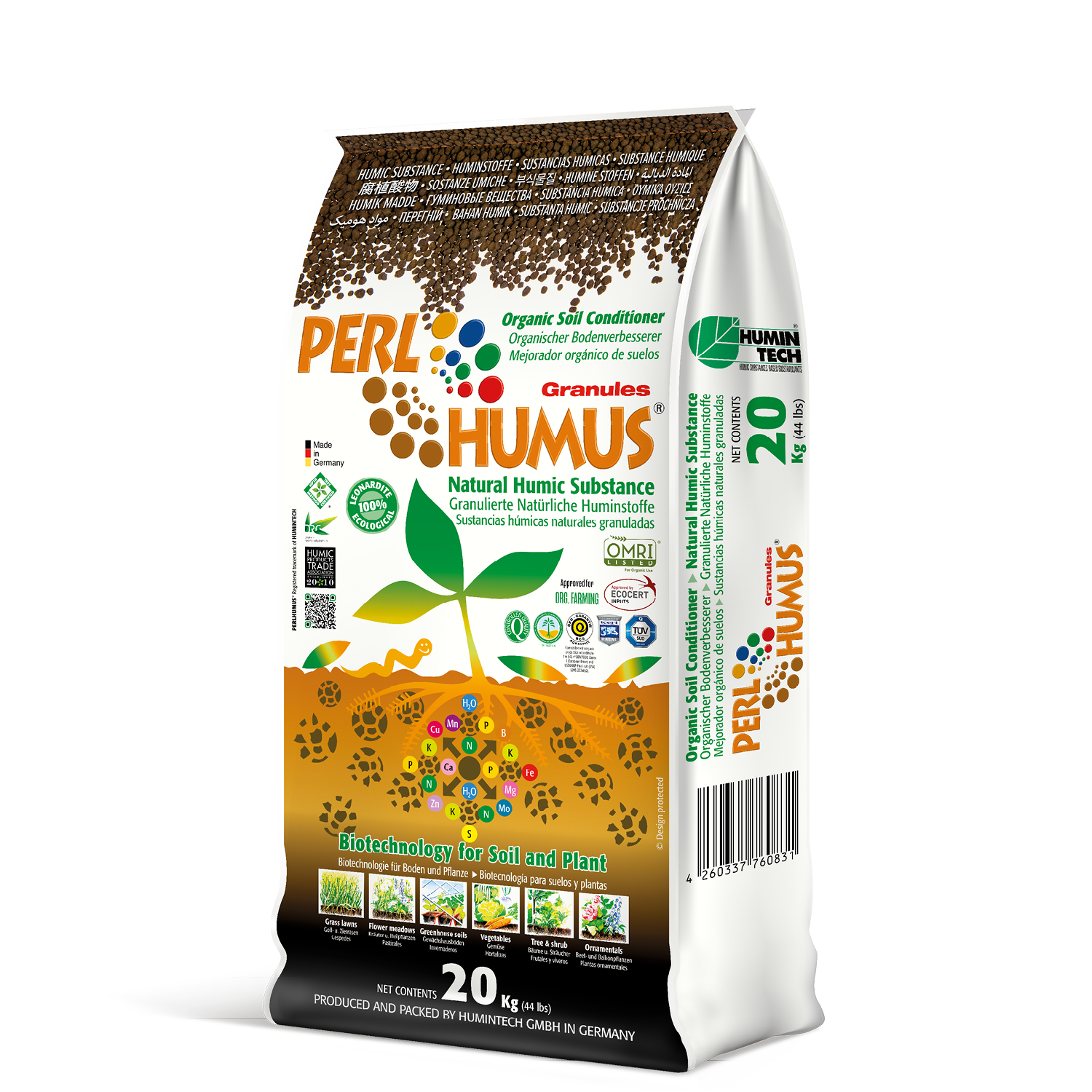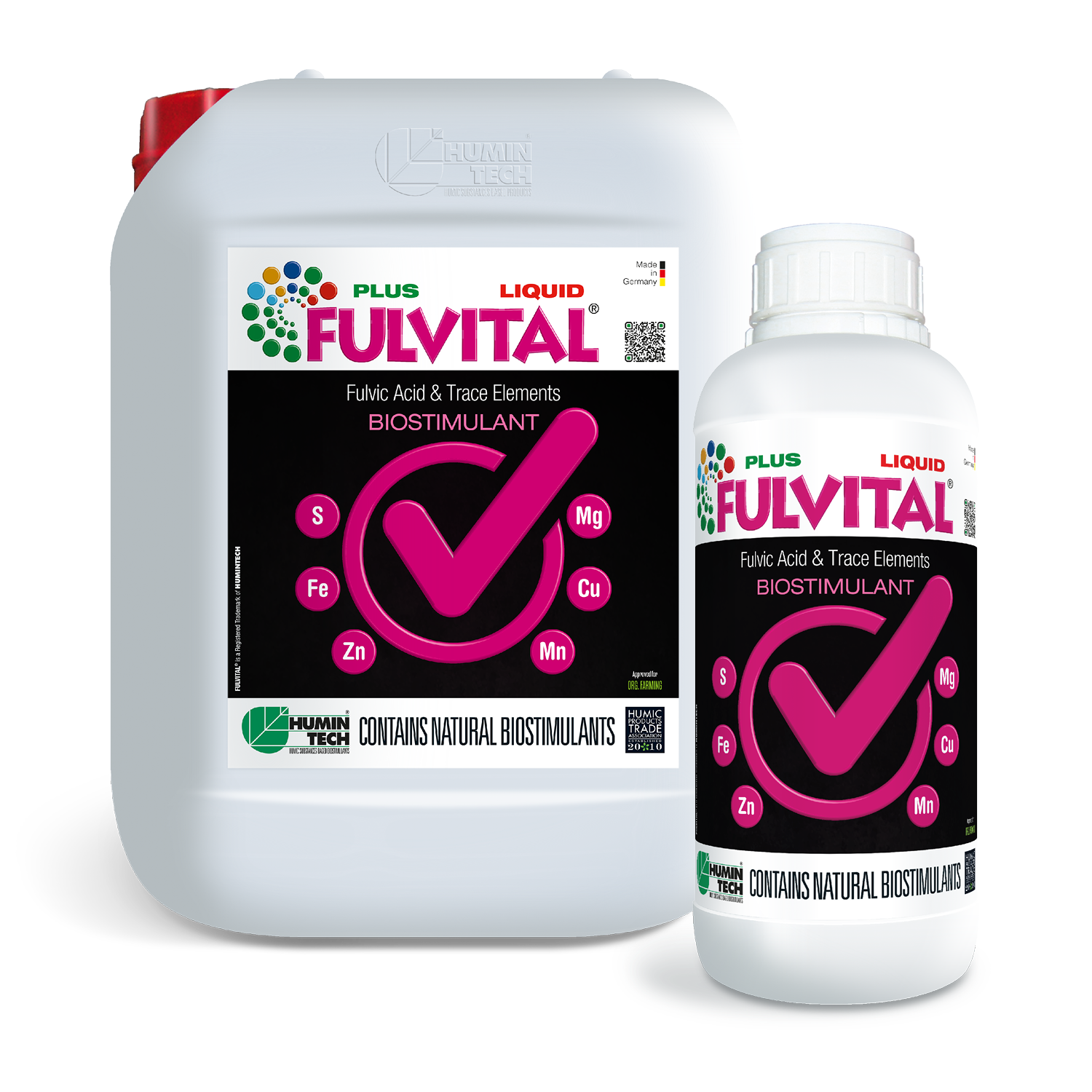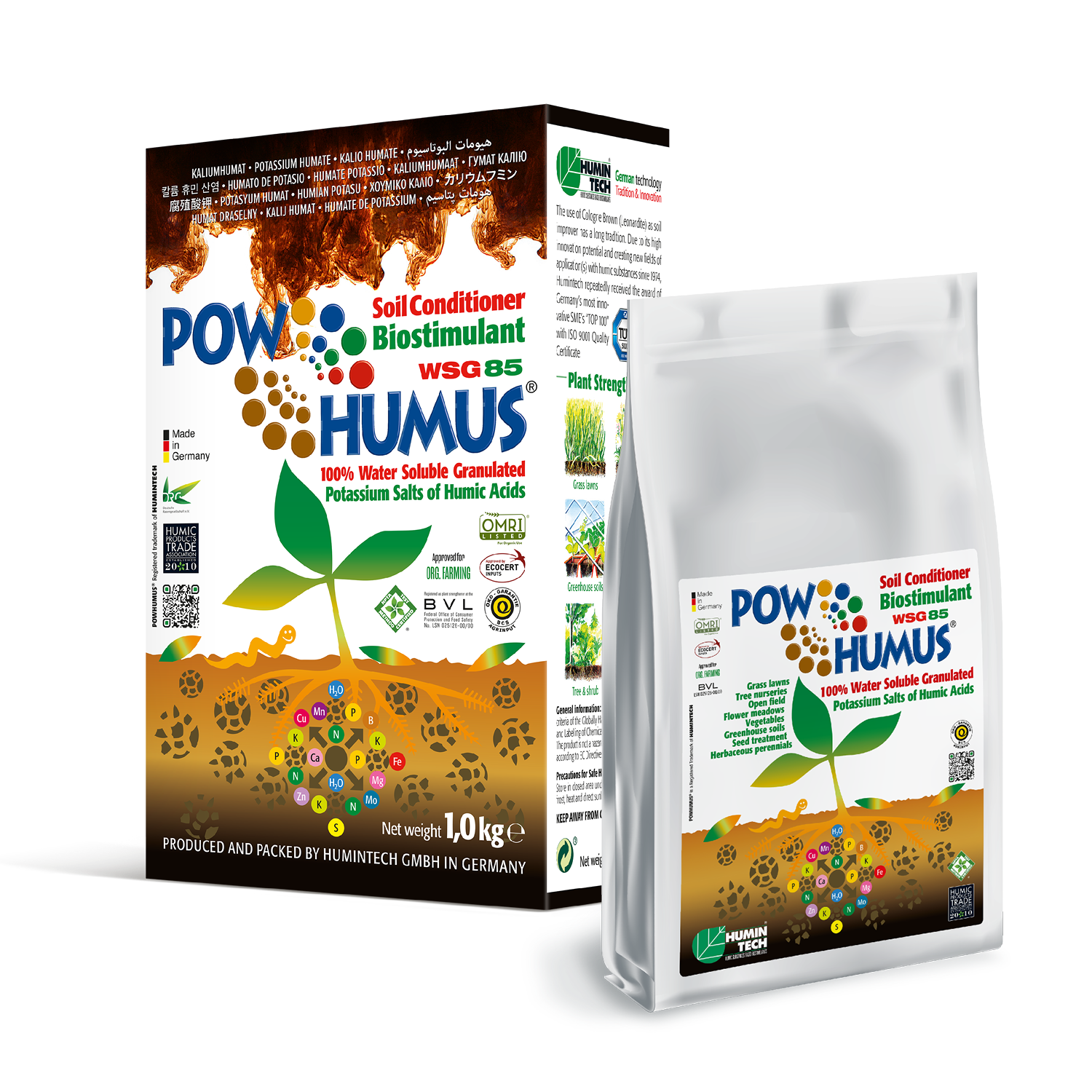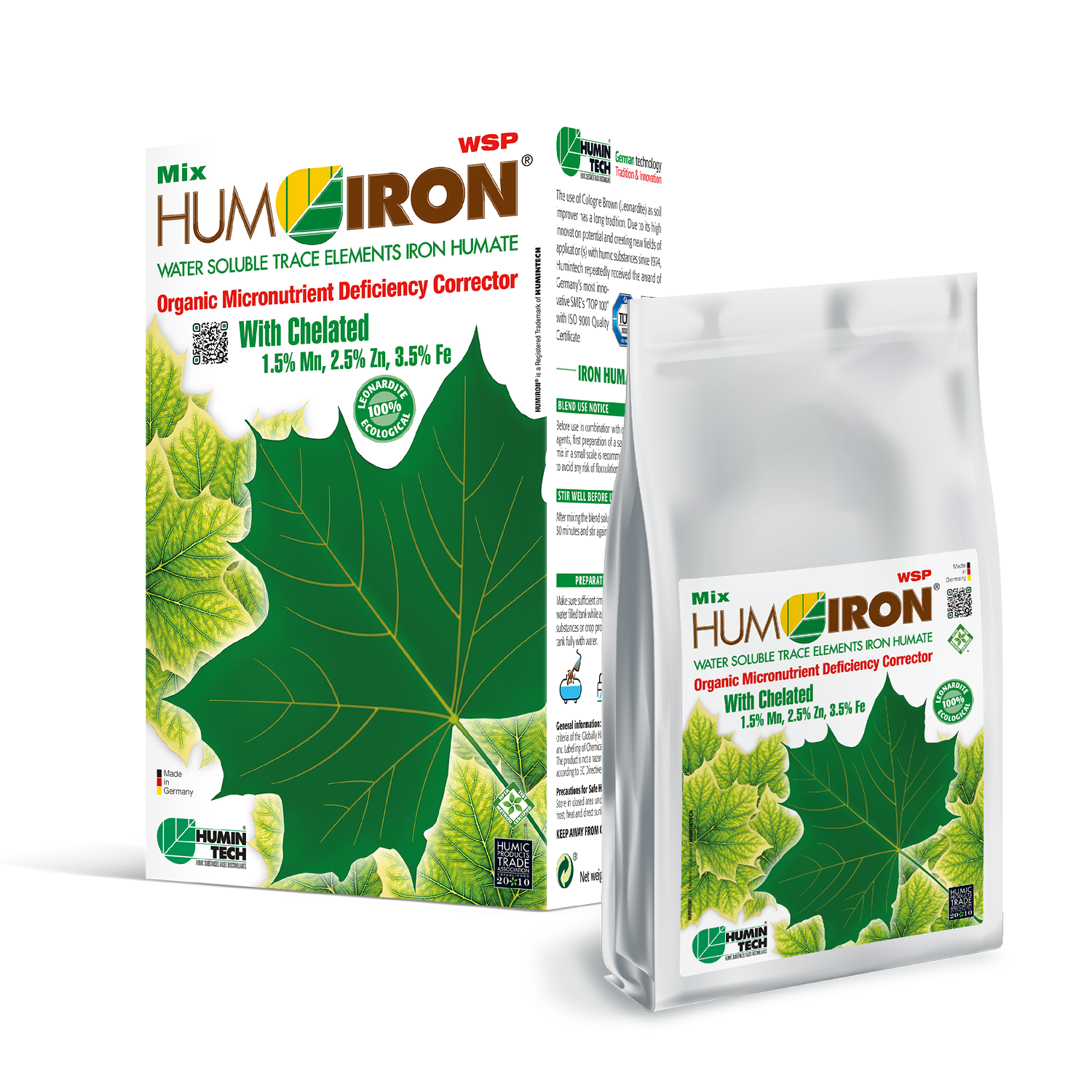VINEYARDS
Humates are very often applied in viticulture, especially – with increasing success – in ecological viticulture.
According to the standards for organic viticulture, soil fertility must be restored by providing organic matter. The goal of this practice is to improve soil structure, soil biological activity, the ability to feed the plant and to increase the existence of competitive antagonists against soil-borne pathogens.
Practices that do not provide organic matter lead to the degradation of the soil, causing problems of erosion. Consequently, the soil loses its physical structure, its existing nutrients and its biological activity.
The application of humates to the soil is an efficient way to increase the content of humic substances and thus of organic matter. The accumulation of humic substances in soils positively affects water holding capacity, temperature, and pH range, improving nutrient availability (e.g. Fe, P) and health maintenance against soil-borne diseases.
In addition, humic substances provide a loose soil structure due to the formation of a clay-humus complex in combination with clay minerals. Therefore, root development and water infiltration are improved so that erosion can be reduced – as, for example, when vineyards are cultivated on slopes or during periods of heavy rainfall.
Suitable products for Vinyards:
Viticulture wants Humic acids – and here is why...






